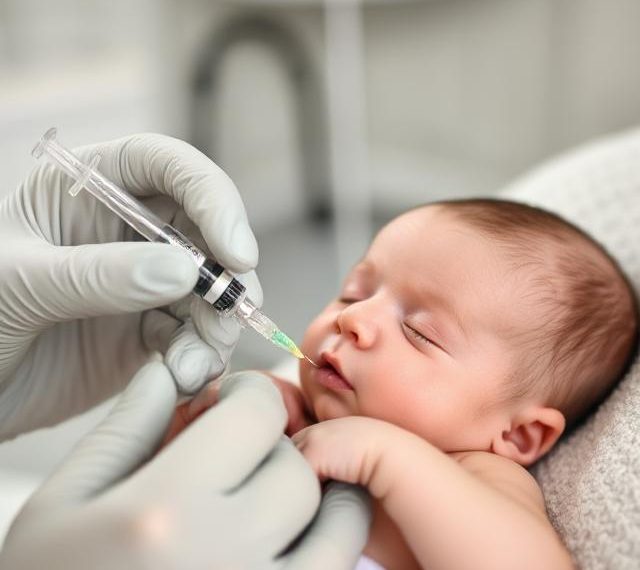One of the most important ways to protect your newborn’s health is through vaccinations. Vaccinations help prevent serious illnesses and diseases that can be life-threatening for infants. In this guide, we will discuss the importance of newborn vaccinations, the recommended vaccination schedule, and common questions parents have about vaccinating their newborns.
Why are newborn vaccinations important?
Newborn vaccinations are crucial for protecting your baby from potentially deadly diseases. Vaccinations work by stimulating the immune system to produce antibodies that fight off specific infections. By vaccinating your newborn, you are not only protecting them from serious illnesses, but you are also helping to prevent the spread of these diseases to others in the community.
Some of the diseases that newborn vaccinations protect against include:
- Measles
- Mumps
- Rubella
- Pertussis (whooping cough)
- Polio
- Hepatitis B
Recommended newborn vaccination schedule
The Centers for Disease Control and Prevention (CDC) recommends a specific vaccination schedule for newborns to ensure they are protected from these diseases at the earliest possible age. The recommended vaccination schedule for newborns includes:
- Hepatitis B vaccine: Given at birth
- DTaP vaccine (diphtheria, tetanus, and pertussis): Given at 2, 4, and 6 months
- Hib vaccine (haemophilus influenzae type b): Given at 2, 4, and 6 months
- Polio vaccine: Given at 2, 4, and 6 months
- MMR vaccine (measles, mumps, and rubella): Given at 12 months
- Varicella (chickenpox) vaccine: Given at 12 months
It is important to follow this schedule and ensure your newborn receives all recommended vaccinations to provide them with the best protection against these diseases.
Common questions about newborn vaccinations

As a parent, you may have questions or concerns about vaccinating your newborn. Here are some common questions and answers to help address any uncertainties you may have:
Are newborn vaccinations safe?
Yes, newborn vaccinations are safe and have been extensively studied for safety and effectiveness. The benefits of vaccinating your newborn far outweigh the risks of potential side effects. It is important to discuss any concerns you may have with your pediatrician.
Can my newborn get multiple vaccinations at once?
Yes, it is safe for newborns to receive multiple vaccinations at the same time. The CDC’s recommended vaccination schedule is designed to provide the best protection against diseases while minimizing the number of office visits for vaccinations.
What are the potential side effects of newborn vaccinations?
Most newborn vaccinations have mild side effects, such as redness or swelling at the injection site, low-grade fever, or irritability. These side effects are usually short-lived and can be managed with over-the-counter pain relievers. Serious side effects from vaccinations are rare.
What should I do if my newborn misses a vaccination?
If your newborn misses a vaccination, it is important to schedule a make-up appointment as soon as possible. Your pediatrician can help you catch up on any missed vaccinations to ensure your baby is fully protected.
Conclusion
Newborn vaccinations are a crucial part of protecting your baby’s health and preventing the spread of serious diseases. By following the recommended vaccination schedule and discussing any concerns with your pediatrician, you can ensure your newborn receives the best possible protection against these illnesses. Remember, vaccinating your newborn not only protects them but also helps protect the health of the entire community. Stay informed, stay proactive, and keep your baby safe and healthy for a bright future.







































